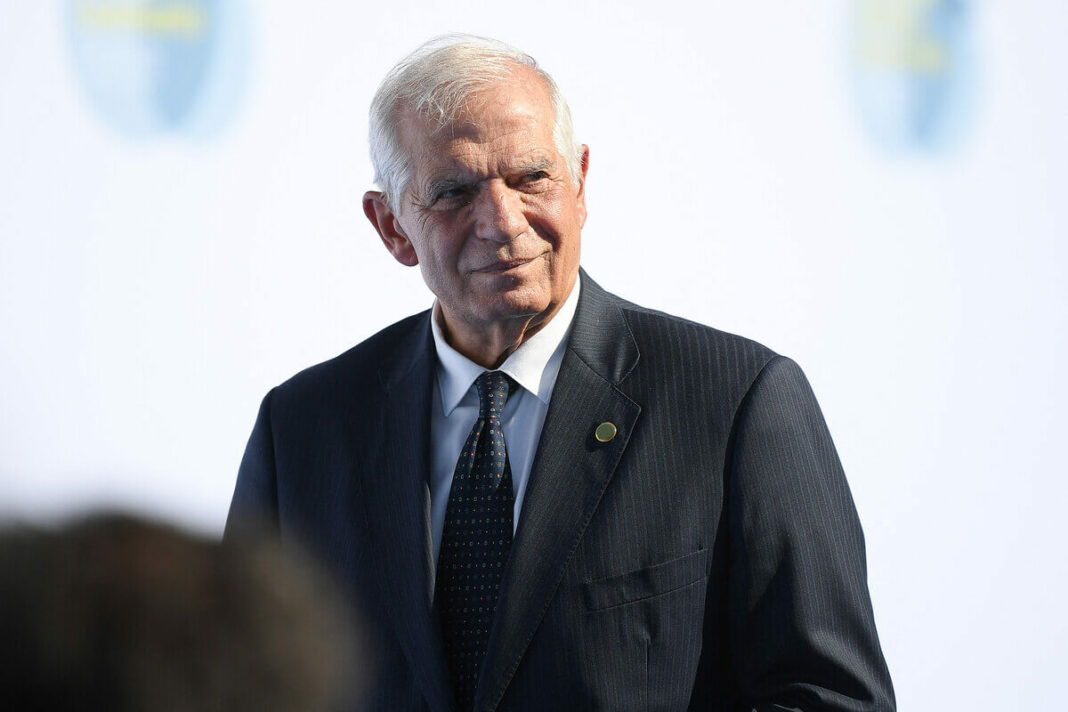The EU’s executive committee recommended on Wednesday that Turkey be offered a series of incentives to strengthen relations in return for Ankara cooperating with the EU on its Russian sanctions and making progress in the Cyprus talks.
The recent joint communication to the European Council by the European Commission emphasized that Turkey is an important partner for the EU. The difficulties of the past, such as the tensions in the eastern Mediterranean and the Cyprus issue, are acknowledged in the report, while a recent and more constructive attitude from Turkey is noted.
Cyprus has been divided since 1974, with a Greek Cypriot south and a Turkish Cypriot north. This division occurred when Turkey deployed troops to the island following a coup attempt aimed at unifying Cyprus with Greece. Turkey continues to maintain over 30,000 troops in the northern part of the island.
The report highlights the evolving geopolitical landscape, including Turkey’s role in the Black Sea, NATO and the conflict in Ukraine. Turkey hasn’t taken part in the EU sanctions against Russia, but its help in enforcing them and preventing the country from becoming a hub for circumventing the sanctions is also seen as crucial.
“We are living in an increasingly complex and challenging geopolitical context, and the need for the European Union to strengthen its security, has a profound impact on the EU-Türkiye relations,” EU foreign policy chief Josep Borrell said.
“I think that we are interested in developing a mutually beneficial partnership with Türkiye – an important neighbour, as I said, a key partner and do not forget it, a European Union candidate country – although the accession track with Türkiye remains at a standstill,” Borrell said.
Turkey has been an official candidate for EU membership since 1999, but the process has been frozen for years.
The relationship between Ankara and Brussels is strained. The EU relies on Turkey when it comes to accepting migrants from Syria, but is at odds with Turkey when Greece and the divided island of Cyprus are involved.
Borrell said the European Commission believes the 27 EU states should support a plan that offers Ankara talks on a new customs union, a relaxation of visa rules and closer cooperation.
“Again, we are clear on what we expect from Türkiye to do for this to happen, namely addressing trade irritants, to cooperate with us on preventing circumvention of sanctions against Russia and creating a climate conducive to the resumption of Cyprus settlement talks,” Borrell said.
Brussels has urged Turkey to stop acting as a transit country for sensitive goods — such as microchips — from the EU that could be used in weapons for an attack on Ukraine.
On the Cyprus issue, the EU has resisted Turkish President Recep Tayyip Erdoğan’s calls for a two-state solution and wants Ankara to allow new UN-brokered talks.
The republic proclaimed by Turkish Cypriot leaders in 1983 is only recognized by Ankara.
Efforts to reunify Cyprus have stalled since the last round of United Nations-backed talks broke down in 2017.
The Greek Cypriot leadership of the Republic of Cyprus rejects the call for a two-state solution and continues to want a bi-zonal, bi-communal federation in line with successive UN peace plans.
The commission says that implementation of the 2016 EU-Turkey Statement on Migration is a priority. The EU proposes to step up efforts to control irregular migration and to put together a new strategic aid package for 2024-2027.
Dialogue on the rule of law and fundamental rights remains an important aspect of EU-Turkey relations but can still be improved, the commission says.
Turkey’s role in EU crisis management, contributions to Common Security and Defence Policy missions and efforts in counterterrorism are outlined, though concerns about the country’s broad definition of terrorism are mentioned.
The Turkish government is accused of using the country’s counterterrorism laws to punish its critics.
Nacho Sanchez Amor, the European Parliament’s Turkey rapporteur, recently said that half of Turkey comprises terrorists if one believes the rhetoric of the Justice and Development Party (AKP) government, complaining about the broad definition of terrorism in Turkey.
Turkey and the EU began membership talks in 2005, but the process has been at a standstill in recent years.
Countries aspiring to become members must align their laws and legislation in 35 policy areas, or negotiating chapters.
EU leaders agreed in 2018 that no new chapters in Turkey’s accession negotiations should be opened or closed.

